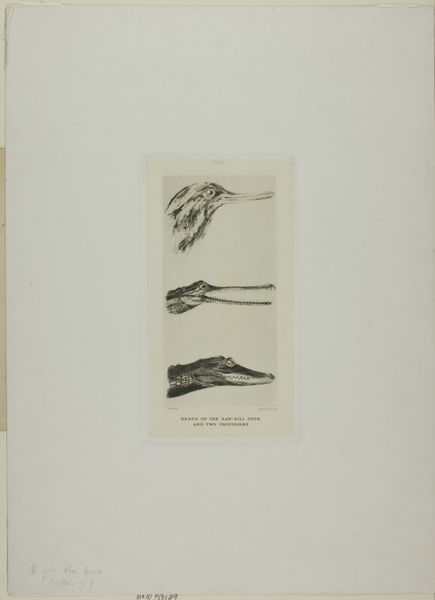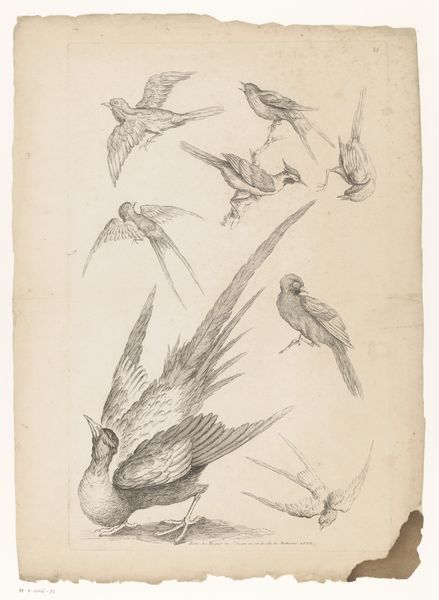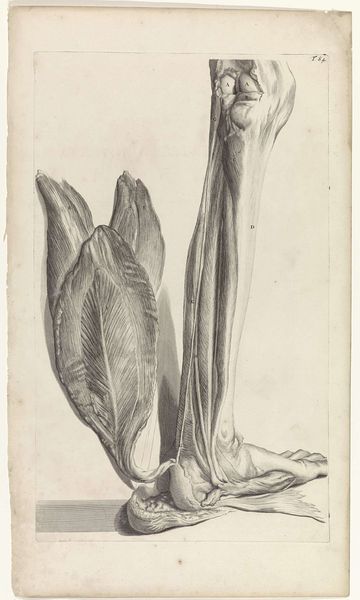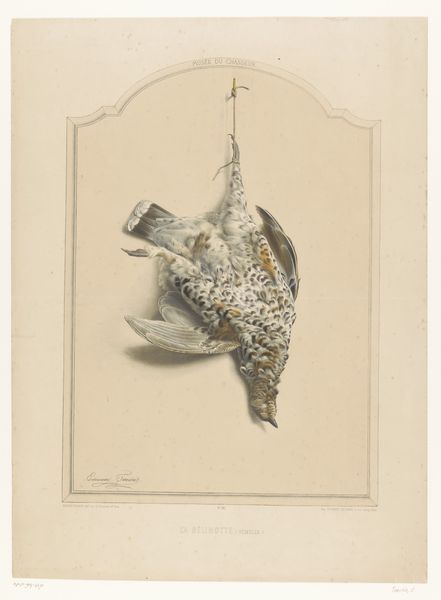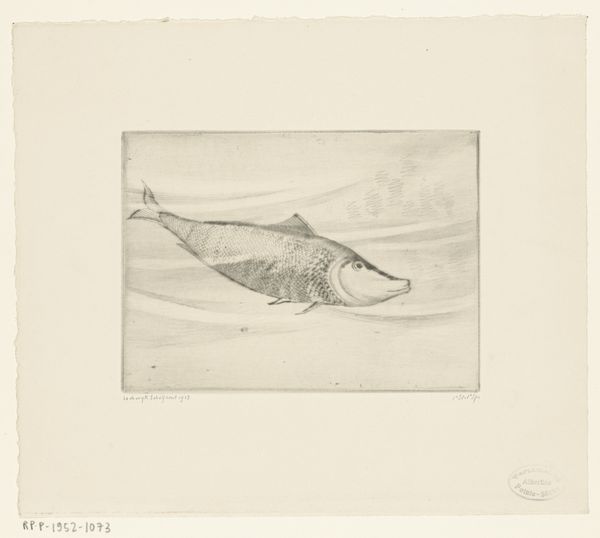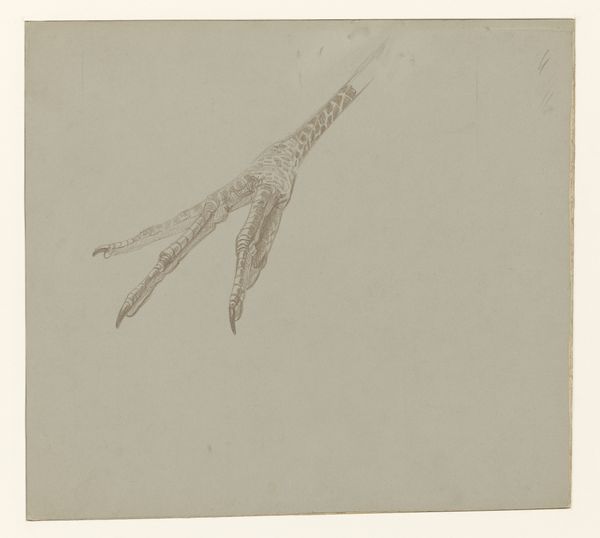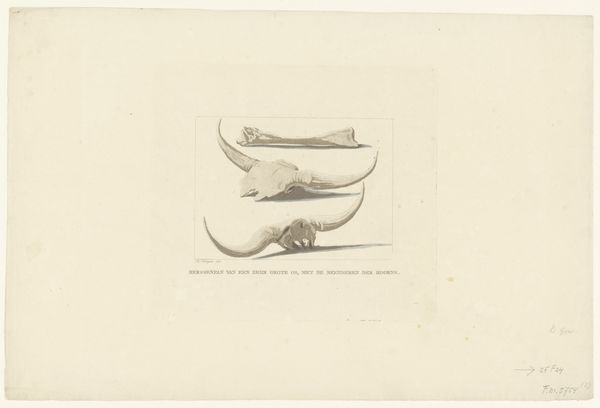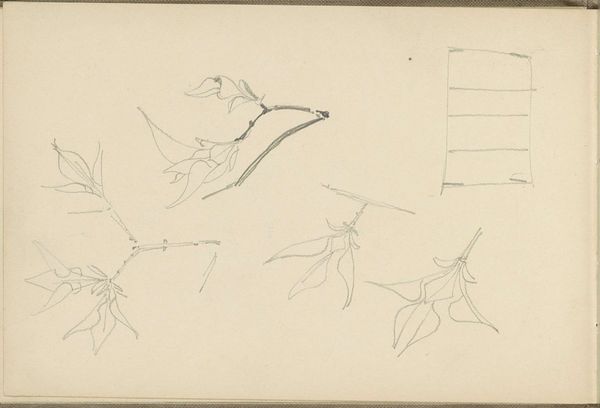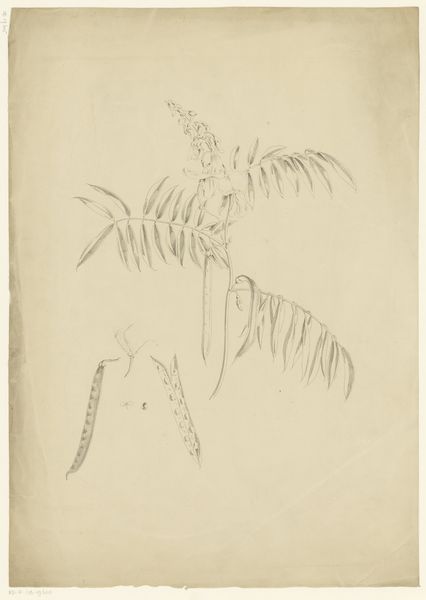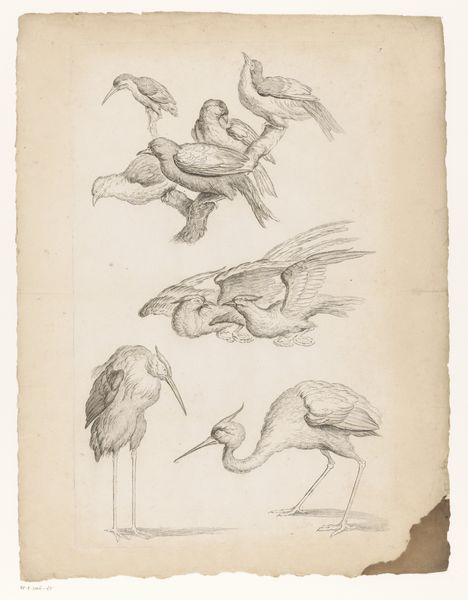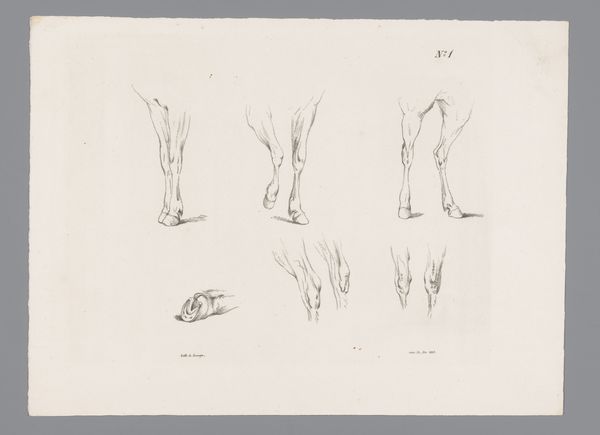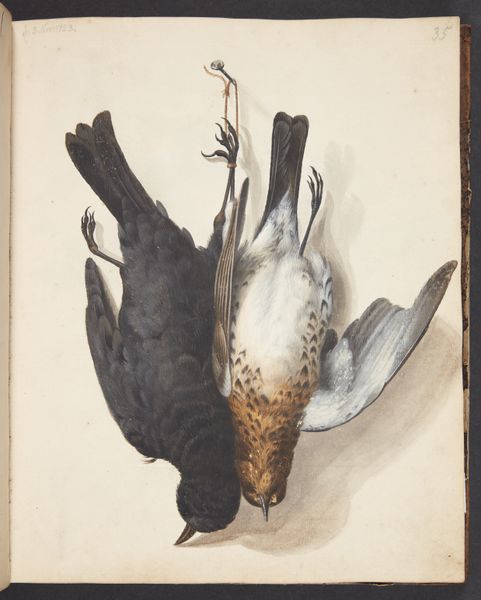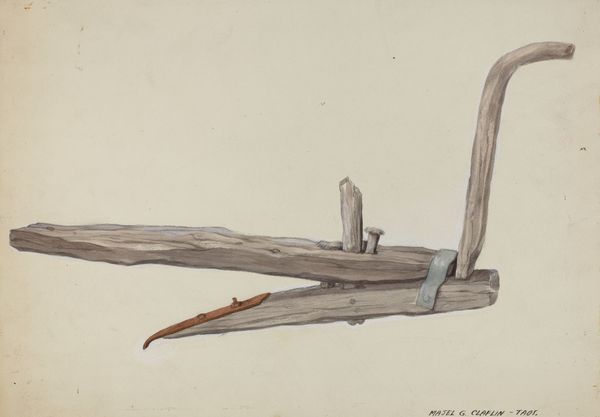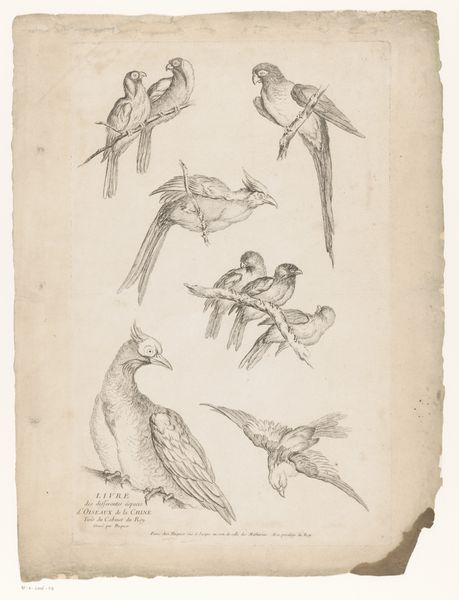
drawing, pencil
#
pencil drawn
#
drawing
#
pencil sketch
#
pencil drawing
#
pencil
#
history-painting
#
academic-art
#
realism
Dimensions: height 265 mm, width 210 mm
Copyright: Rijks Museum: Open Domain
Editor: This is "Anatomieën van een Lori," or "Anatomies of a Lori," a pencil drawing from 1843 by Christian Gerhard Rudolf Meijer. It feels almost clinical, like something out of a medical textbook. What's your take? Curator: Indeed, it’s a fascinating convergence of art and science. These anatomical studies weren't just about depicting physical structures; they represented a deeper investigation into the natural world, a very Enlightenment pursuit. What do you notice about the ways Meijer renders the unseen? Editor: Well, the detail is incredible, especially considering it's just pencil. The veins and muscles are so meticulously drawn. Curator: Yes, it goes beyond simple representation. These images were created for instruction, so the precision serves an important function. Think of the symbolic weight given to visual accuracy during this period – it's about control over knowledge, mastery of the biological realm. The choice of the Lori is also fascinating – it speaks to European naturalists and colonial expansions… Editor: Colonial expansions? Curator: Certainly! Consider the era. Documenting the flora and fauna of newly "discovered" lands was an integral part of colonial projects. How might images like this have fueled both scientific understanding *and* colonial ambition? Editor: That's… a really uncomfortable thought. I hadn’t considered the darker side of scientific illustration. Curator: Often the most compelling images carry contradictory meanings. Now, when you look at this, do you still only see objective scientific rendering? Editor: No, I see a little bit of power and control dynamics now, definitely. Curator: Precisely! A drawing of a Lori becomes a loaded image – simultaneously about anatomy, science, and the complexities of colonial power.
Comments
No comments
Be the first to comment and join the conversation on the ultimate creative platform.
